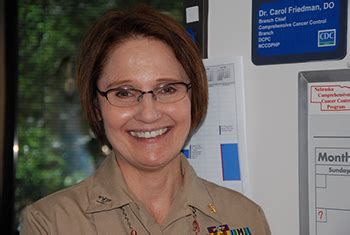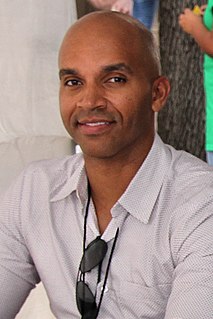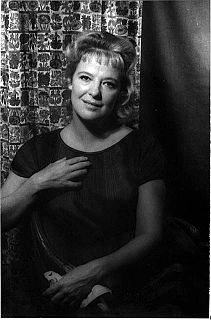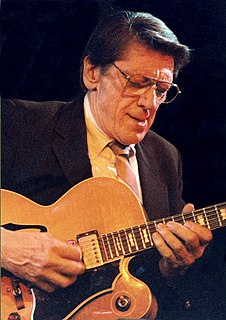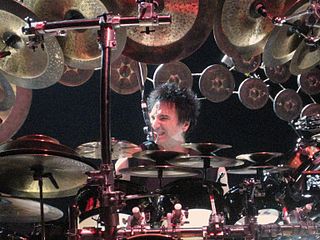A Quote by Adele Logan Alexander
I think that one of the ways that Americans will come to want to look at history is by looking at their own families' histories, and how those stories relate to the larger picture of American history. Then it is no longer abstract. Then it becomes a story that really means something to us as individuals.
Related Quotes
When I look at American history and I look at what history means to me, I look at it as if it were a string of stories. And if it's told well enough and in a way that's charming and warm and with wit and humor, then it takes a bit of the edge off of it. You can still tell the truth, but if you tell it very sweetly and very warmly, it makes it go down a bit easier.
People have this kind of concept that they can't change but I feel like change is possible. So who you choose to be is who you are and who you will be. I think that you can be enlightened in many different ways and if you choose to be enlightened and are someone who seeks out those things then you can be that and you will be that. If you want to be enlightened you will be enlightened. If you want to be an asshole you will be an asshole. But the greater scope of this statement is if you look at the history of humans, really, nothing has changed.
It makes us a thread in a tapestry that has unrolled for centuries before us, and will unroll for centuries after us. We're midway through the loom, that's the present, and what we do casts the thread in a particular direction, and the picture of the tapestry changes accordingly. When we begin to to try to make a picture pleasing to us and to those who come after, then perhaps you can say that we have seized history.
People take pride in being Irish-American and Italian-American. They have a particular culture that infuses the whole culture and makes it richer and more interesting. I think if we can expand that attitude to embrace African-Americans and Latino-Americans and Asian-Americans, then we will be in a position where all our kids can feel comfortable with the worlds they are coming out of, knowing they are part of something larger.
What I think I do is to relate any new material to how similar it is to something else. The closest that I can come up with something that's already in my experience, the easier it becomes. All I have to do then is remember where it differs, like relating a chord sequence that comes from some other tune, or several different tunes, or maybe parts of them and then work it from there.
[A]s soon as you try and take a song from your mind into piano and voice and into the real world, something gets lost and it's like a moment where, in that moment you forget how it was and it's this new way. And then when you make a record, even those ideas that you had, then those get all turned and changed. So in the end, I think, it just becomes it's own thing and really I think a song could be recorded a million different ways and so what my records are, it just happened like that, but it's not like, this is how I planned it from the very beginning because I have no idea, I can't remember.
For people who are coming out of an oral tradition, it is very exciting to get into reading and writing and it is quite interesting how frequently people want to write their own story. Sometimes it is straight history - this is how we came about, how our town was created, a lot of that kind of effort, as soon as literacy came. The first thing you wanted to do was to put something down about who you are or how you are related to you neighbors. Then the next stage would be the stories, the cultural part of the story: this is the kind of world our ancestors made or aspired to.
Storytelling is how history is passed. It's what our ancestors did, it's what everybody's done. It has to come back into a story because otherwise, it's stuck in this book and it's boring and it's academic and I'm not against intelligence and I'm not against education, I don't want to be misunderstood, but we have tell the stories to our young people a little bit early and history gives us a lot of things.
I really think kids should understand that music is like learning the alphabet. You put small letters together to make words, and then you use these words to create a story, but with music. And they really need to know how to mix and match those letters and how to come up with something that is really interesting, or speak in metaphors as poets do to show us something maybe we didn't think about.
Think about it: you've already related it down to something that somebody else can understand. If art relates to something - it's like Picasso, it's like Mondrian - it's not. Art's supposed to be what it is. Using a reference of art history might help for some kind of sales, but it doesn't really help anybody. Art is what it is; it cannot be footnoted, until it enters the world. Then it has a history. Then the footnotes are the history, not the explanation.

